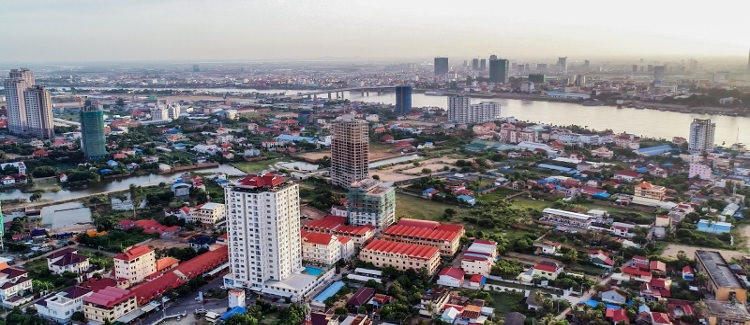3 Easiest Places to Invest in Asia

As promising as Asia is in terms of investments, it can be difficult setting up long-term investments in some of the countries. This is sometimes due to corruption and an alarming level of bureaucracy in these countries.
Amidst all that, Asia remains your best option to grow and diversify your assets. So do not let it stop you.
I know you hate when things are difficult to acquire. You want to get started in the Asian markets without any issue. This is very possible. You just have to choose the right country.
Your choice should be based on the country’s economic growth prospects, ease of investments, minimum entry price, and variety of options available to non-indigenes.
Here is a list of the top three easiest Asian countries for investors.
3. Malaysia
Malaysia is the easiest Asian country for foreign real estate investors to break into. This is mainly because it is the only country in the continent where non-indigenes are allowed to fully own land on a freehold basis. Generally, Malaysia mandates that foreign real estate buyers purchase at least $125,000 worth of property.
To start a business, this country requires only 3 procedures which are completed in 5.5 days, and it costs only 7.2% income per capita in fees. This provides the investor with a very simple entry into the Malaysian market.
The Malaysian stock exchange boasts of more than 1,000 publicly listed firms in diverse sectors of the economy.
Although foreigners are restricted in some selected fields, the Malaysian Government has liberalized most business sectors of interest. Foreign investors are now encouraged by tax incentives and numerous available investments. These business sectors of interest include healthcare services, environmental protection, manufacturing, and biotechnology.
Foreigners in Malaysia have enough freedom to the extent that they can even choose to set up a private or a public company. They often pick Kuala Lumpur as their city of choice for setting up a company. The Government provides incentives to corporations that set up their businesses in Greater Kuala Lumpur. These incentives include funds, expatriate employment incentives, grants, and tax incentives.
Investing in Malaysia is indeed very promising, yet it is easy to start. The country has become very attractive for investors due to its robust economy, skilled workforce, supportive government, and good infrastructure.

2. Cambodia
Despite the country’s small size, Cambodia’s economy is the fastest-growing on the list. The country has recorded an annual GDP growth rate of more than 7% since the beginning of the 21st century. This strong economic growth is mainly due to the inflows of Foreign Direct Investments in the last two decades. The FDI inflows into this country have increased by 800% in the last decade. In 2018, the country recorded her highest GDP of $3B.
Cambodia’s stable and progressive economy is also evident in the fact that the country has never experienced a recession in decades. Neither the Great Depression of 2008 nor the Asian Financial Crisis of 1997 affected the stability of this progressive frontier market.
Also, Cambodia’s economy is currently experiencing a rapid boost. This unprecedented boom phase promises good fortune for potential investors.
The only downside is that stock traders in Cambodia have limited options. The Cambodian stock exchange is the smallest in the world, with just five listed corporations.
Guillaume Rondan, founder of the community expat website Move To Asia is expecting Cambodia to be one of the top 3 country in the world about real estate sector growth in the next years. Learn more in this in-depth article if you want to diversify and invest in Cambodian real estate market.
Cambodia has no visa restrictions. A Cambodian visa is one of the easiest Asian visas to acquire. The Tourist Visa is free for 14-30 days. The regular 30-day visa is available and easily accessible in airports and land borders. This is the type used by jobseekers and tourists from non-ASEAN countries. It requires no documentation. Also, Work Visa for 3, 6 and 12 months duration are available.
There is no currency differentiation in Cambodia. The US Dollar is widely accepted and used in the country, alongside the local currency, Khmer Riel. More than 75% of the transactions done in the country use the US Dollar. This makes it much easier for foreigners to conduct business in the country. Cambodia is the only Asian country where this is practiced.
Foreigners in Cambodia can invest, and own companies. They are allowed up to 100% ownership. There are zero trade restrictions. Foreign investors also have the freedom to set up whatever business they like.
Every Foreign Corporation that registered as QIP (Qualified Institutional Placement) enjoys special tax depreciation or total tax exemption. In total tax exemption, foreign investors can enjoy a tax holiday for up to 3 years.
1. Thailand
According to the World Bank annual ratings, Thailand is 21st on the list of economies with ease of doing business. The country’s real estate sector is the most accessible in Asia.
Although foreigners cannot fully own land, like in Malaysia, they purchase property here more than in any other Asian country. Perhaps it is because Thailand does not have a minimum purchase requirement, like Malaysia.
Thailand offers very interesting and promising opportunities for foreign investors. The country has a couple of special investment policies. Some focus on free trade, while others encourage activities that promote innovation and technology. You can also trade stocks in Thailand. Thailand’s market cap is the second largest in Southeast Asia with more than 600 listed equities.
There are several tax and non-tax incentives for companies in Thailand. Also, there is no specific minimum setup capital for new companies.
Conclusion
The three countries listed above are good exceptions of the saying “nothing good comes easy”. These countries provide you with the opportunity to easily expand and diversify your assets while promising very profitable long-term investments. I advise that you start with one of them before seeking out other options that may prove difficult to break into. Happy Investing!




